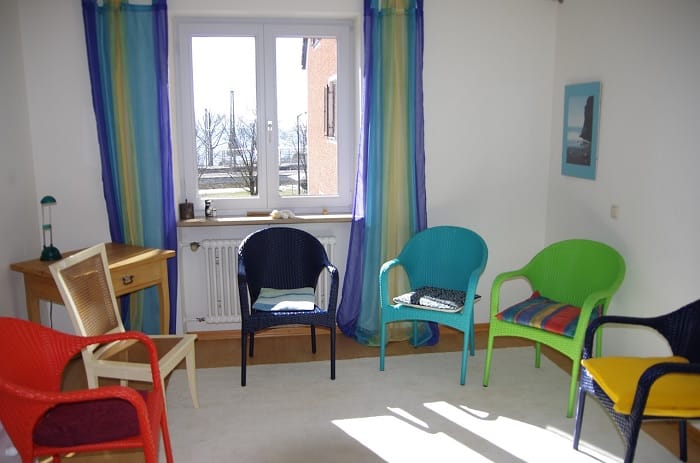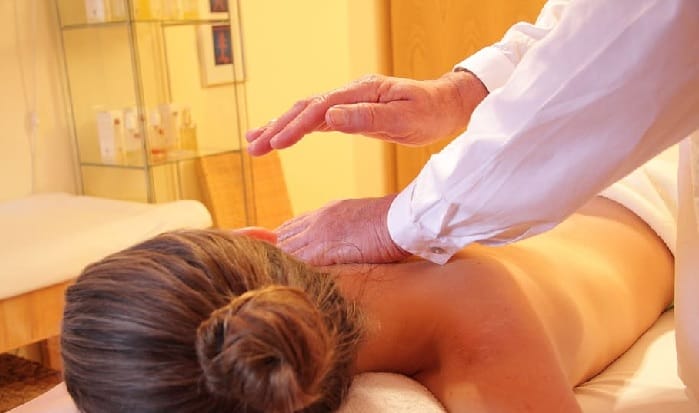For the vast majority of people living in Scotland, alcohol is a relatively harmless substance used to liven up social occasions.
However, for others alcohol is an immense issue that threatens their physical and psychological well-being.
Under these circumstances, people with alcoholism face a startling choice: stop drinking alcohol and live, or continue to drink alcohol and die.
In Scotland, many people, unfortunately, suffer from drug and alcohol addiction. [1] The harsh reality is that you are five times more likely to die from alcohol or drug addiction if you are Scottish compared to your counterparts in England.
The good news is that your addiction is highly treatable, and there is no shortage of excellent drug and alcohol rehabs in Scotland and near Scotland.
These providers have come a long way since the 1990s. Modern alcohol rehabilitation cenres s in Scotland offer evidence-based treatments.
Medicated detox follows NICE Guidelines. [2]
The old ‘institutional’ alcohol rehab treatment centre is very much a thing of the past, and there exist modern rehabs that focus on providing a loving and caring environment for their clients.
Foryour best chance at a clean and sober future, access a drug and alcohol rehab in Scotland through our team on 0800 140 4690

Reaching out for professional help in Scotland may seem like a threatening prospect. Many people with alcoholism may not understand the significance of this illness.
Many people may also entirely resist the notion that they suffer from alcoholism.
Thankfully, Rehab 4 Addiction is on hand to ensure you or your loved one receives the care and attention you need to defeat drug or alcohol addiction.
When you contact us, we can help you come to terms with the existence of your condition.
Once you have overcome denial in coming to terms with your alcoholism, you effectively make it possible for us to devise a solution to your problem.
Initially, we carry out a telephone assessment. This addiction assessment is used to gather relevant information concerning your addiction.
We then use this information to match you up to a suitable drug and alcohol rehab in Scotland or near Scotland.
It’s likely we may locate more than one treatment provider. In this case, we may refer you to several treatment providers.
When you first get to a rehabilitation centre, you will undergo a psychiatric addiction assessment in order to be diagnosed and receive the most appropriate addiction treatment programme for your specific needs.
This will be done by a psychiatrist or other medical professional.
This will help you on your path to sobriety.
You may also need to have a medically-assisted detox – especially for those going through alcohol detox or heroin withdrawal, or for those who have a physical dependence on a substance, as the symptoms can be very dangerous.
You may be prescribed Librium or Chlordiazepoxide for alcohol withdrawal symptoms.
Long-term consequences of substance abuse and alcohol abuse can include hepatitis, Wernicke encephalopathy, alcohol withdrawal syndrome, seizures and more.
To start your recovery journey with the help of an alcohol and drug rehab in Scotland, call us today on 0800 140 4690

Lots of people who suffer from an addiction to drugs or alcohol might question whether or not they’re suitable for alcohol rehabilitation.
They might question whether or not they’re ready, whether it would be deemed ‘too late’ for them or just simply ‘too early.’
However, the reality is that it’s never too late or too early to attend and receive treatment for substance abuse.
Nevertheless, in order to receive proper addiction treatment it is suggested by many drug and alcohol rehab centres that you must be consuming approximately 30 or more units of alcohol per day.
Additionally, as with many addictions, individuals often tend to present a range of mental health issues. This makes it extremely hard to complete a home detox or helps themselves without attending alcohol rehab.
In fact, by attempting to do so they might be putting their physical and mental health issues worse.
Here’s a list of some common alcohol rehab criteria that doctors and addiction treatment professionals look out for when assessing whether or not someone is suitable for alcohol rehab in the Scotland area:
Treatment professionals also use the DSM-IV-TR diagnostic criteria. [3] This includes:
If you’re wondering whether or not you would benefit from drug and alcohol rehab in Scotland, give our team a call on 0800 140 4690

Although there are general price ranges that most addiction rehab clinics sit within, there are a few factors that affect how much it costs to go to alcohol rehab.
For example, where the alcohol rehab treatment center is located will affect the price.
Additionally, the price also varies on how long you stay there, and whether you decide to opt for a private or shared room.
For example, a ten-day alcohol rehab stint in a private room costs anywhere between £3,000 and £6,000.
However, the same duration in a shared room is a lot cheaper, coming in at anything between £2,000 and £4,000.
However, if you stay for longer, say a period of 28 days then the cost will be considerably more expensive. For example, you should expect to pay anything between £8,000 and £12,000 for a private room and £6,000 for a shared room.
If this cost is unrealistic for you, then you might also want to consider a home detox.
It’s important that you understand that a home detox is not the same thing as ‘going it alone.’
A home detox means that you will be sent medication to your house, and will receive daily phone calls from doctors, therapists and other professionals to check in with you and see how you’re doing.
Although this is considerably cheaper, at only £1,500, you do not receive the same level of treatment and help as you would attending residential alcohol rehab.
For a more accurate estimation of how much your time at a drug and alcohol rehab in Scotland will cost, call us today on 0800 140 4690
In the UK, there is some confusion surrounding the issue of private vs NHS-funded alcohol rehab.
What many people aren’t aware of is that there is no such thing as a totally NHS alcohol rehab centre.
Unfortunately, this just simply does not exist.
Due to an overall lack of funding for the NHS, there are only a few NHS-funded beds within private drug and alcohol rehab centres.
Here is a list of some pros and cons to consider whilst deciding if you want to opt for private alcohol rehab or NHS alcohol rehab treatment.
To learn more about choosing the right drug and alcohol rehab for you, give our team a call today on 0800 140 4690
If you attend alcohol rehab via the NHS, then the main benefit is that you don’t have to pay a penny towards your treatment programme.
This makes addiction rehab accessible to those who might not be able to afford it and is one of the many great things about the NHS.
If you attend alcohol rehab and receive treatment through the NHS, then it’s also likely that you will be put in a local alcohol rehab treatment centre, meaning that you won’t be too far away from friends and family.
However, gaining a place at an alcohol rehab centre through the NHS is becoming increasingly hard.
Due to a lack of funding, these places are becoming extremely limited.
Therefore, the NHS is not able to hand these places out easily.
Additionally, whilst these places are hard to come by, they also involve a very long waiting list which could have some people waiting weeks, if not months to get help.
Free and NHS-run treatment services [11] available throughout Scotland include:
Address: 80 Tradeston St, Glasgow, G5 8BG
Telephone: 01414 206 969
Website: https://turningpointscotland.com/directory/glasgow-alcohol-and-drug-crisis-service/
Address: 62 Broughton St, Edinburgh, EH1 3SA
Telephone: 0131 557 5273
Website: https://www.changegrowlive.org/north-west-recovery-service-edinburgh/info
Address: The Junction, 82-86 Great Junction Street, Edinburgh, EH6 5LL
Telephone: 0131 553 0570
Website: http://www.the-junction.org
Finally, if you’re suffering from a dual diagnosis, the NHS will treat your mental health issues separately from your addiction.
This will make recovery less smooth and might mean that you have to wait longer for your mental health treatment programme.
Additional organisations you can reach out to for help include Alateen, Turning Point, We Are With You, Samaritans, and SMART Recovery.
You can also find help from the National Association for Children of Alcoholics [12] the National Institute for Health and Care Excellence, [13] and a local NHS Foundation Trust.
To access NHS funding for your stay at a drug and alcohol rehab in Scotland, call our team on 0800 140 4690

Although it is expensive, there are many benefits and pros to attending private alcohol rehab.
For a start, you receive top-of-the-range and professional medical treatment and psychological care and support.
By opting to go private, you will also get help quicker, with teams working around the clock to get you through the door as quickly as possible.
You will also receive an aftercare support plan, which means that you will be less likely to relapse.
However, as noted above, private alcohol rehab is expensive and therefore not everyone can afford to pay to go private.
Going private or through the NHS is something you should think about carefully.
For many people, paying to go private simply isn’t an option. However, if you’re in urgent need of care then it is something you should consider or talk to an NHS doctor about.
For help choosing between private and NHS funding when it comes to accessing drug and alcohol rehab in Scotland, call our team on 0800 140 4690

Unfortunately, there is no one set time that suits all.
How long you will need to stay in an addiction alcohol rehab depends very much on your personal situation.
Sme individuals might only need to stay in alcohol rehab for 7 days.
Although this is generally the minimum amount of time people tend to stay in alcohol rehab for, if you have a mild addiction then this might be enough time to recover.
Nevertheless, at Rehab 4 Addiction we recommend that individuals stay in alcohol rehab for at least 28 days. This is so that any physical and mental symptoms can be treated properly and in good time.
For some people, this might take a bit longer. For example, some stay in alcohol rehab for 60 days. However, this does tend to be the case for individuals suffering from long-term, severe addiction.
For a more accurate estimation of how long your time at drug rehab and alcohol rehab in Scotland will last, give our team a call on 0800 140 4690

Anyone who attends an alcohol rehab treatment center for alcohol addiction in Scotland, or elsewhere within the UK, will need to undergo alcohol detox.
For lots of people suffering from an addiction, they will have heard about the unpleasant withdrawal symptoms.
Unfortunately, these symptoms include things like feeling nauseous, irritated, stressed, anxious, agitated and excessively sweating and being sick.
For individuals who are already suffering from a range of health concerns from their addiction, these withdrawal symptoms make things even harder.
Not to mention the increased health risks undergoing a detox brings.
During your alcohol detox, you will receive care day in, day out from medical and healthcare professionals.
During this time, it might be recommended a course of Librium, which is a form of medication-assisted treatment used to help relieve symptoms of anxiety.
It’s often used for the first 10 days of your detox, and then a few weeks afterwards if needed.
After you’ve overcome the alcohol detox process, you will then be given the chance to work on your mental and physical well being.
Now that your body has overcome your withdrawal and rid itself of the addictive substances, it’s time to focus on overcoming your triggers.
It is really important to identify and overcome these triggers before you leave the alcohol rehab facility, as many of these triggers will still exist at home and in your daily life.
Once at alcohol rehab, you’ll be working with professionals to create coping mechanisms so you can avoid and overcome these unhelpful triggers.
The NIH [14] states that there are two main types of triggers, being external and internal.
External triggers include things like people, situations or places that might trigger a negative emotion.
Internal triggers include things like your emotions and internal feelings which might trigger the need to consume alcohol to escape feeling a certain way.
Access your ideal alcohol rehab in Scotland today by calling us on 0800 140 4690

Home detox is not to be confused with trying to recover and detox on your home, without any help.
As previously discussed, this can be a much cheaper alternative for those who don’t want to attend an alcohol rehab in Scotland, or for those who simply cannot afford the cost.
Most drug and alcohol rehab centres can offer an at-home detox services, if the individual drinks less than 30 units of alcohol per day, and if they are in the right mental and physical state to attempt an at-home detox.
You will receive all medication (Librium included) in the post and will receive daily phone calls from doctors and therapists.
Although this is a great alternative, it’s important to understand that an at-home detox is in no way the same as attending a residential treatment centre.
To learn more about accessing home alcohol detox in Scotland, give us a call on 0800 140 4690

Cocaine is highly addictive and changes how your brain acknowledges pleasure.
However, not many individuals are aware that cocaine is not physically addictive.
Therefore, if an individual withdraws from cocaine, they will not experience any withdrawal symptoms in the same way as they would alcohol.
However, cocaine causes a very strong psychological addiction, which can be extremely hard for many individuals to overcome.
Beat your cocaine addiction today at a drug and alcohol rehab in Scotland – call us on 0800 140 4690

Heroin is also another very highly addictive drug, which causes serious harm to both your psychological and physical health.
Unlike cocaine, if you attempt to withdraw from heroin, you will experience physical symptoms.
Because of this, it’s extremely important to attend a professional addiction rehab facility if you are thinking about detoxing from heroin.
Beat your heroin addiction today at an alcohol and drug rehab in Scotland – call us on 0800 140 4690

Excessive use of cannabis can and does lead to some very serious health concerns.
These concerns include immunity issues, depression, paranoia, anxiety and respiratory issues.
In a similar way to cocaine, although cannabis might not cause your body to become physically addicted to the drug, it’s a highly addictive drug psychologically.
A treatment programme schedule for cannabis use disorder will require a lot of work on your mental health, which will involve talking therapy, either in a one-to-one or group setting.
Other types of addiction that can be treated at rehab include:
Beat your cannabis addiction today at a drug and alcohol rehab in Scotland or near Scotland – call us on 0800 140 4690

Thankfully, there are a lot of different treatment options on offer in most drug and alcohol rehabs in Scotland or near Scotland.
These options include, but are not limited to the following treatment options.
Cognitive Behavioural Therapy (CBT) is a very popular form of therapy that aims to change the way individuals frame their thoughts.
A brief intervention is a tool and technique used and recommended by addiction treatment professionals to try and establish in the early days of an individual’s recovery to establish whether or not an individual is capable of stopping on their own.
It is simply structured and short conservation, which often takes place during the admissions stage.
Dialectical Behavioural Therapy (DBT) is similar to CBT in that it aims to change the way people frame their thoughts and emotions. The only difference is that DBT deals with individuals who have very strong, intense emotions that they struggle to control.
DBT works to help people find a balance between accepting how they feel and finding strategies to overcome these negative emotions.
Holistic therapy is another great treatment option offered to most people at alcohol rehab.
Holistic therapy often involves a range of activities such as painting, drawing, doing yoga or pilates, swimming, mindfulness and even equine therapy.
Other types of activities include acupuncture, art therapy, drama therapy and music therapy.
Motivational Interviewing aims to use the individuals’ internal motivations to help them change on their own.
It works to overcome ambivalence, in that it helps individuals to resolve any contradictory thoughts or emotions about their addiction, triggers or certain situations.
For some individuals with a mild addiction, it might be recommended that they are best suited to group therapy.
In group therapy, you will be given therapy and the chance to share your experience, thoughts and emotions in front of others.
They will be able to help, advise and guide you whilst making you feel like you have a support system that not only cares but understands what you’re going through.
If group therapy isn’t for you, then you might attend one to one, individual therapy.
This could include CBT or DBT therapy, which goes in-depth into your motivations, triggers, thoughts and emotions.
Family therapy might be useful if you believe that some of your triggers come from your home and family.
Family therapy involves attending therapy with your family, whilst you have a calm, controlled and open discussion about how they might trigger certain behaviours or motivations.
This is a form of treatment that encourages individuals to seek help from 12 step self-help groups.
These self-help groups include groups such as the AA, which have been known to have very high success rates.
Co-dependency occurs when an individual feels attached or dependent on someone or something.
This causes low self-esteem and issues with boundaries and saying no.
If you’re suffering from codependency, then it’s likely that you will receive CBT.
Other types of therapy include:
In addition to the above, you can access other forms of psychiatric treatment at rehab including contingency management, person-centered care and more.
If you want to access any of these treatments through a drug and alcohol rehab in Scotland, give our team a call on 0800 140 4690

Lots of individuals who suffer from addiction also suffer from a co-occurring mental health issue.
This means that you will be given a dual diagnosis and receive appropriate mental health disorder treatment.
These mental health disorders include things like anxiety, depression, schizophrenia or bipolar disorder.
This means that at alcohol rehab, individuals with a dual diagnosis will receive treatment for both their addiction and their mental health disorder.
You can also find general mental health support at Rethink Mental Illness, Papyrus, Young Minds, Samaritans and Mind UK.
Other co-occurring mental health conditions that can be treated alongside addiction in alcohol rehab include:
Whether you need anxiety treatment or help with a personality disorder alongside your addiction, a fully qualified alcohol rehab centre can give you the help you need.
Any mental health problems treatment plans you receive at alcohol rehab will be just as effective as those acquired through a traditional mental health treatment hospital.
To learn about how drug and alcohol rehab in Scotland will support your mental health, call us today on 0800 140 4690

Most people at alcohol rehab will receive a relapse prevention plan. This plan will include information on relapses and how to avoid them. [16]
It highlights the fact that all relapses happen gradually, and that there are certain milestones to a relapse.
It also suggests that CBT therapy is a great way to avoid relapsing and that there are a number of rules that you should follow to remain sober.
If you want to learn how a drug and alcohol rehab in Scotland will help you avoid relapse for the rest of your life, call us today on 0800 140 4690

We understand that residential alcohol rehab isn’t for everyone, which is why we’ve listed a few alternatives to attending drug and alcohol rehab in Scotland or near Scotland below.
12-step self-help groups such as Alcoholics Anonymous (AA), [17] Narcotics Anonymous (NA) [18] and Cocaine Anonymous (CA) [19] are a great way to receive help and support without attending alcohol rehab.
You’ll be surrounded by like-minded individuals who know and understand what you’re going through. These are often focused on religion and the concept of a higher power.
Unlike groups like the AA and NA, SMART meetings [20] have four steps.
These steps include finding your motivation to change, learning how to deal with cravings, managing your negative emotions and tips on how to live an overall healthier and more positive life.
As discussed above, home detox is a great alternative to attending addiction inpatient treatment whilst also receiving help from medical professionals.
If you’re a family member or friend in need of support, then an Al-Anon group might be for you.
There are hundreds of Al-Anon groups throughout the UK that aim to help family members and loved ones cope with issues surrounding the individual’s addiction.
There are many different outpatient treatment options in Scotland.
Most alcohol rehab centres in Scotland offer outpatient treatment programmes, which allows individuals to receive treatment at a rehab centre and then go home to live their daily life as normal.
To access any of these support services, or to attend a drug and alcohol rehab in Scotland, give our team a call on 0800 140 4690
Get In Touch Today

To enquire about our free assessment and alcohol rehabilitation services in Scotland, contact us today on 0800 140 4690.
All information you provide will be held in the strictest of confidence. We look forward to receiving your call and getting you onto the road towards long-term abstinence with the help of a drug and alcohol rehab in Scotland or near Scotland.
Every alcohol rehab in Scotland that we work with is vetted by the Care Inspectorate.
Rehab 4 Addiction officers a range of addiction treatment services in Scotland, including Aberdeen, Ayrshire, Glasgow, Edinburgh, Strathclyde, Stirling, St Andrews, Prestwick, Perth, Peebles, Paisley, Motherwell, Midlothian, Lothian, Livingston, Kilmarnock, Irvine, Inverness, Berwick, Hamilton, Glenrothes, Galloway, Falkirk, Dunfermline, Dundee, Dumfries, Dumbarton, Clydebank, Bathgate, Bannockburn, Argyll, Angus and many more.
This article was written by Boris Mackey. You can connect with Boris online at LinkedIn or X.com.
 Substance addiction, also referred to as Substance Use Disorder (SUD), is a chronic and relapsing brain disease that affects both physical and psychological functioning. It develops when repeated exposure to drugs or alcohol alters brain chemistry, particularly the reward and motivation systems, leading to compulsive substance use despite harmful c .... Read More
Substance addiction, also referred to as Substance Use Disorder (SUD), is a chronic and relapsing brain disease that affects both physical and psychological functioning. It develops when repeated exposure to drugs or alcohol alters brain chemistry, particularly the reward and motivation systems, leading to compulsive substance use despite harmful c .... Read More
 Addiction recovery is a deeply personal and individual journey. The decision to seek help for your drug or alcohol addiction and rebuild your life generally happens quietly, sometimes after years of struggle. But while recovery starts at an individual level, it’s rarely successful in isolation. Behind most long-term recovery stories is a time whe .... Read More
Addiction recovery is a deeply personal and individual journey. The decision to seek help for your drug or alcohol addiction and rebuild your life generally happens quietly, sometimes after years of struggle. But while recovery starts at an individual level, it’s rarely successful in isolation. Behind most long-term recovery stories is a time whe .... Read More